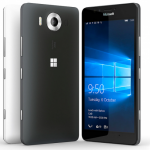PayPal focuses its efforts and drops Windows Phone app

Like many other companies, PayPal is questioning the value of investing time and money in Windows Phone -- or Windows 10 Mobile, if you prefer. As of 30 June, the PayPal app for Windows Phone will be no more.
At the same time, the company is also dropping the apps for Blackberry and Amazon Fire OS. PayPal says that users will have to rely on the mobile website as it focuses "resources in creating the very best experiences for our customers".
Microsoft to ditch hundreds more workers in smartphone streamlining measures

After the sale of its feature phone business last week, Microsoft is making further structuring changes. Announcing the "additional step of streamlining our smartphone hardware business" Terry Myerson says that up to 1,850 jobs could be impacted, with the vast majority of these (1,350) being in Finland.
He also says that the company will continue "develop great new devices", no doubt fueling rumors of the highly-anticipated Surface Phone. Microsoft recognizes that its success with phones have been "limited", and Myerson's memo to employees reiterates the company’s commitment to the Windows platform, and Windows 10 in particular.
Microsoft's share of the mobile market plummets to below 1% as Android continues to rise

Global smartphone sales figures published by Gartner show that Windows-based devices have a market share of just 0.7 percent. The latest figures cover the first quarter of 2016 and reveal that fewer than 2.4 million handsets with Microsoft's OS installed were sold.
This is a dramatic drop from the first quarter of 2015. A year ago the numbers were hardly earth-shattering, but with a 2.5 percent market share they were decidedly healthier than right now. While Windows Phone continues to drop like a stone, Android's seemingly unstoppable rise continues, with Google increasing its market share from 78.88 percent a year ago to 84.1 percent in Q1 2016. Apple suffered a drop to 14.8 percent.
What is the most popular Windows Phone?

The Windows Phone landscape has evolved at a slow pace in the past three years, and the list of the ten most popular smartphones running the tiled operating system is proof of that. Since July 2013 Lumia 520 has held the top spot in the charts, taking Lumia 920's crown just a few months after being introduced. But, fast forward to today and we finally have a new king.
Before you get too excited and think that we finally have some major changes at the top you should know that Windows Phones appeal mainly to folks who shop in the low-end segment of the market. As such, the smartphone that follows Lumia 520 at the top of the pack is also an entry-level handset.
Weak Lumia sales prove Microsoft should put an end to Windows 10 Mobile

It is hard to take Windows 10 Mobile seriously when Microsoft announces sales of just 2.3 million Lumias in a whole quarter. If you ever thought that the platform can actually be competitive in today's market, now is the time to wake up. This year, smartphones sales are expected to reach 1.5 billion units. If Microsoft manages to move 10 million Lumias in 2016, Windows 10 Mobile's market share would likely be around the one percent mark.
Microsoft is not the only Windows Phone/Windows 10 Mobile vendor, but it is the largest by far. It sells about 90 percent of the smartphones running the tiled operating system, so its performance has a major impact on the platform's popularity.
Even Microsoft's biggest fan doesn't want Windows 10 Mobile

Windows Phone has been dead for some time now. I knew it. The world knew it. Dogs knew it. The only people that were seemingly unaware were those that pledged allegiance to Microsoft. You know who they are -- those men and women that some call "fanboys".
Even the journalism community has them. Folks like Paul Thurrott and Mary Jo Foley are unapologetic fans of Microsoft. While Thurrott has long since abandoned the horrific Windows Phone platform, Foley has been one of the few holdouts. Today, she announces that she -- Microsoft's biggest fan -- is choosing the Linux-based Android instead. If this doesn't signal the death of Windows Phone/Windows 10 Mobile, I don't know what does.
Android gaining ground mainly at Windows Phone's expense

Windows Phone sales took a dive in 2015, and it looks like the trend continues in 2016 as well. The platform is losing ground in major markets across the globe, according to a new report by Kantar Worldpanel ComTech. And Android is taking advantage of it.
In the three months ending February 2016, Windows Phone saw its market share drop considerably in five major European markets (France, Germany, Great Britain, Italy and Spain), and US and Australia, with Android adding the percentage points it lost under its belt. Things are looking better in China and Japan, however.
Microsoft: If you wanted to reach a lot of phone customers, Windows Phone isn't the way to do it

The smartphone market is essentially a three horse race these days. Android and iOS lead the way, while Windows Phone (or Windows 10 Mobile) limps along at the rear, looking for all the world as though it needs to be put out of its misery at the knacker's yard.
Today at Build, Terry Myerson admitted that Microsoft's mobile platform has failed to set the world on fire, going on to say that the company's focus is very much on Windows 10 for non-mobile platforms. This means Windows 10 for the desktop, Windows 10 for Xbox One, and Windows 10 for HoloLens and the Internet of Things. He acknowledges that mobile is "the wrong place for us to lead".
Microsoft changes its mind -- older Lumias will not get Windows 10 Mobile

The Windows 10 Mobile rollout is a major screwup. Microsoft had promised to kick it off by the end of last year, but existing smartphones only started to receive a software update last week. Microsoft had also promised to support all Lumias that arrived since Windows Phone 8's debut, but, when the rollout finally started, only a limited number of smartphones were targeted.
What's more, Microsoft now says that it has no plans to support the remaining Lumia handsets in "a second wave", leaving many of its fans and customers, who have been eagerly waiting for Windows 10 Mobile to finally arrive, officially stuck on Windows Phone 8.1.
Samsung announces progress with SmartThings for Windows Phone

Windows Phone has its fans, but they sometimes, perhaps most times, feel left out of things. That includes the latest fad, the Internet of Things. Controlling devices in your home can be easily done without moving off the couch, but, for the most part, you better have an Android or iOS device at hand.
Samsung is hoping to open this world up to more people. The company makes a line of devices it calls SmartThings and the platform is compatible with some devices made by other manufacturers. It hopes to soon update its app on the Microsoft platform (yes, it has one) in an effort to please everyone and, perhaps, get a few more customers.
Developers earn more on Windows Phone than Android or iOS

Windows Phone is nowhere near as popular as Android or iOS, having a market share of just over one percent, but it appears to be far more lucrative for developers than either of the two major platforms. In fact, developers who publish apps in Windows Store can expect to earn twice as much compared to those who create Android titles.
On average, a Windows Phone developer earns $11,400 per month, which equates to $136,800 per year. In contrast, an iOS developer has to make do with $8,100 per month, or $97,200 per year, while an Android developer makes $4,900 per month, or $58,800 per year.
Microsoft demolishes Bridge for Android -- yet another nail in the Windows 10 Mobile coffin

Getting developers to create apps for Windows 10 Mobile is very much a chicken and egg scenario. Developers are hesitant to dedicate resources to a platform with such few users, while users don't want to use a platform with no apps.
To try and alleviate this app problem, Microsoft came up with a scheme called "Bridges", to help developers easily port their Android and iOS apps to Windows. Today, sadly, Microsoft is killing the Windows Bridge for Android. With the iOS bridge being the final exciting "Bridge" attraction, Windows 10 Mobile consumers should probably just buy an iPhone instead. Right?
Microsoft shutters video messaging app Skype Qik pushing users to Skype

As of 24 March, Microsoft's Skype Qik app will be no more. The video messaging app has essentially been swallowed up by its big brother Skype, meaning that it is now surplus to requirements.
Microsoft says that the reason for the closure is that Skype Qik's features are now available in Skype. As a result of this, iPhone, Android, and Windows Phone users who had come to rely on the tool to keep in touch will have to seek out an alternative and take steps to save any messages they want to keep.
Apple's new Trade Up With Installments program aims to lure Android users to iPhone

Apple has launched a new program called Trade Up With Installments which makes it possible to upgrade to the latest iPhone in a more affordable way. As the name suggests, this is more than a straight trade-in program -- upgraders can use the trade-in value of their old handset to reduce on-going monthly costs.
This is something that will appeal not only to people with older iPhones who are looking to get their hands on a newer model, but also ex-Android fans -- Apple is opening up the program so Android handsets can be traded in and their value offset against the cost of a new iPhone. Windows Phone handsets are also eligible.
Sorry 'pundits', but Windows Phone was never alive

After Microsoft revealed that Windows phone revenue fell 49 percent and Lumia sales dropped to 4.5 million units last quarter, disingenuous headlines like "Windows Phone is dead" started to show up. Believe it or not, some pundits actually believe that Q4 was the quarter when the platform met its end, like it did not "die" a long, long time ago.
Objectively speaking, Windows Phone was never relevant enough in the modern smartphone market to be truly alive. Lumia sales, which have typically accounted for the vast majority of Windows Phone sales each quarter, were never strong enough to pose a threat to the iPhone line or let alone the Android crop. Windows Phone was a feeble player from the start, which lost any real chance of mattering years ago, outside of the Microsoft crowd that is.
Recent Headlines
Most Commented Stories
© 1998-2025 BetaNews, Inc. All Rights Reserved. About Us - Privacy Policy - Cookie Policy - Sitemap.